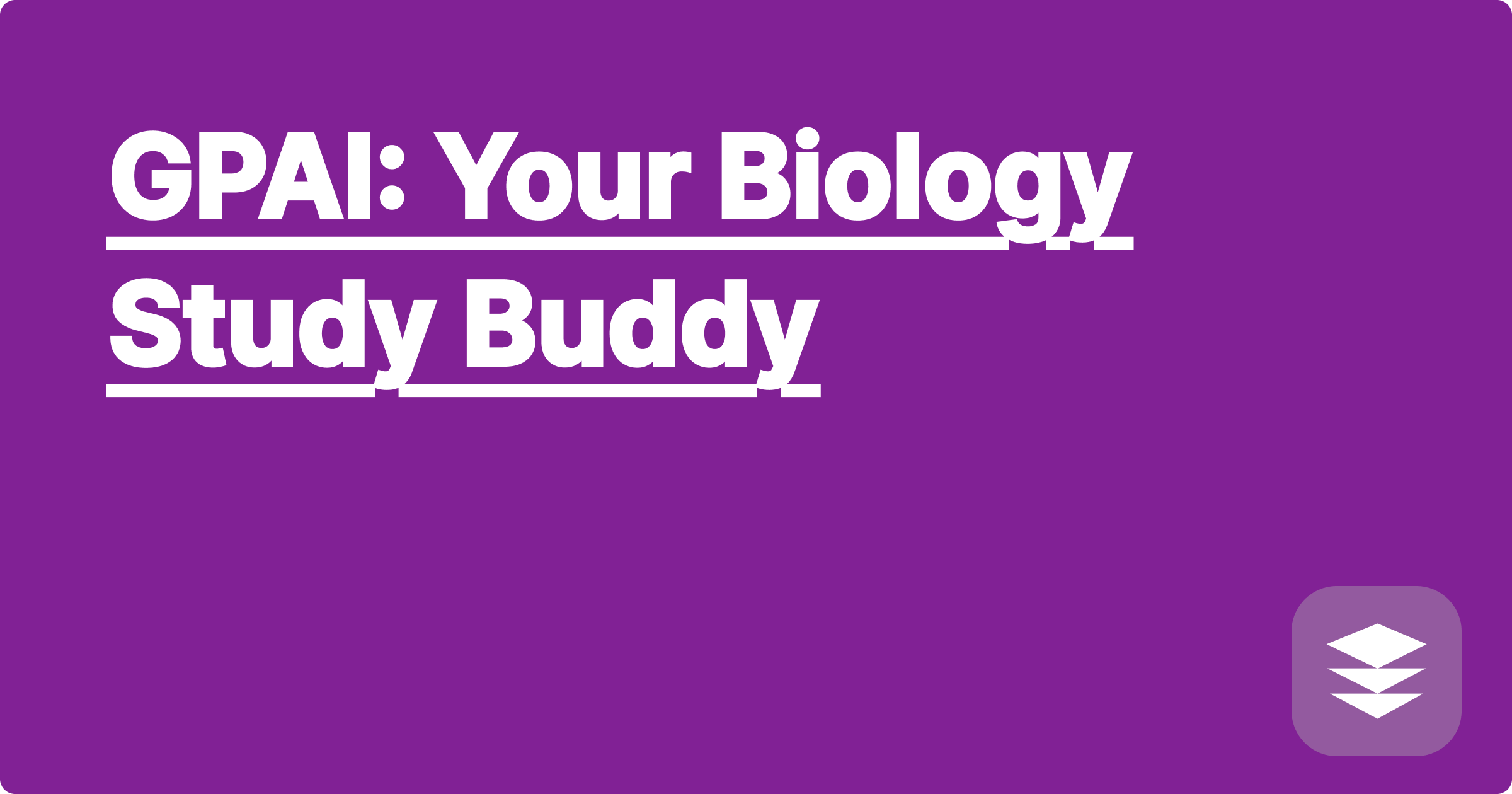
The sheer volume of information in STEM fields, particularly biology, presents a significant challenge for students and researchers. Staying updated with the latest discoveries, understanding complex concepts, and effectively applying this knowledge can feel overwhelming. Artificial intelligence (AI) offers a powerful set of tools to navigate this complexity, acting as a personalized study buddy and research assistant. AI can help synthesize information, explain difficult concepts, and even generate practice questions, ultimately empowering STEM learners to achieve deeper understanding and academic success.
This matters significantly for STEM students and researchers because the ability to efficiently process and apply information is crucial for success in these fields. AI can bridge the gap between passively absorbing information and actively engaging with it, leading to improved comprehension and retention. By leveraging AI tools, students can personalize their learning experience, focusing on areas where they need the most support. Researchers can accelerate their literature reviews, explore new hypotheses, and ultimately contribute to advancements in their respective fields.
Biology encompasses a vast and intricate web of knowledge, ranging from molecular mechanisms to ecosystem dynamics. Students often struggle with the sheer breadth and depth of the subject matter, finding it difficult to connect disparate concepts and apply them to real-world scenarios. The traditional learning methods, often relying on rote memorization, can be inefficient and fail to foster a deep understanding of the underlying principles. Researchers, on the other hand, face the daunting task of sifting through an ever-expanding body of literature, identifying relevant information, and formulating novel research questions. These challenges necessitate innovative approaches to learning and research, and AI offers a promising solution.
AI-powered tools like ChatGPT, Claude, and Wolfram Alpha can be invaluable resources for biology students and researchers. ChatGPT and Claude, for example, can be used to explain complex biological processes in simpler terms, provide summaries of research articles, and even generate practice questions to test comprehension. Wolfram Alpha excels at providing factual information, performing calculations related to biological formulas, and visualizing data. By strategically utilizing these tools, learners can transform their approach to studying and research.
Begin by identifying a specific topic or concept you want to learn more about. For instance, if you are struggling with understanding the Krebs cycle, you can use ChatGPT or Claude to explain the process step-by-step. You can ask clarifying questions, request different analogies, or even ask the AI to generate a simplified diagram. Next, you can use Wolfram Alpha to explore related formulas, calculate energy yields, or visualize the cycle's different stages. This iterative process of questioning, exploring, and visualizing can significantly enhance your understanding.
Consider the concept of photosynthesis. You can ask ChatGPT, "Explain photosynthesis in simple terms, as if I'm a high school student." The AI will then provide a clear and concise explanation, breaking down the complex process into digestible chunks. You can then delve deeper by asking more specific questions, such as, "What role does chlorophyll play in photosynthesis?" or "How does light intensity affect the rate of photosynthesis?" Wolfram Alpha can then be used to explore the chemical equation for photosynthesis (6CO₂ + 6H₂O → C₆H₁₂O₆ + 6O₂) and calculate the theoretical yield of glucose given specific input parameters. For researchers, AI can be used to summarize recent research papers on photosynthesis, identify key findings, and even generate potential research questions based on existing literature.
To effectively leverage AI in your biology studies, it's essential to be specific and clear in your prompts. Instead of asking general questions, focus on specific aspects you want to understand. Don't hesitate to ask follow-up questions and request clarification. Treat the AI as a conversation partner, engaging in an active dialogue to deepen your understanding. Furthermore, it's crucial to remember that AI is a tool, not a replacement for critical thinking. Always verify information obtained from AI with reputable sources and use your own judgment to evaluate the information presented.
Integrating AI into your workflow can significantly enhance your learning and research experience. Start by experimenting with different AI tools to find the ones that best suit your needs. Explore the various functionalities these tools offer and discover how they can be applied to different aspects of your studies and research. Embrace the power of AI to transform your learning journey and unlock your full potential in the fascinating world of biology. By actively engaging with these tools and incorporating them into your study habits, you can gain a deeper understanding of biological concepts, improve your academic performance, and contribute to advancements in the field.
GPAI: Ace Physics Homework Fast!
Chem Exam Prep: GPAI's Secret Weapon
Conquer Calculus: GPAI Solver's Power
GPAI: Master Organic Chemistry!
Engineering Data: GPAI's Analysis
GPAI: Your Linear Algebra Ally
GPAI: Conquer Your Stats Exams!